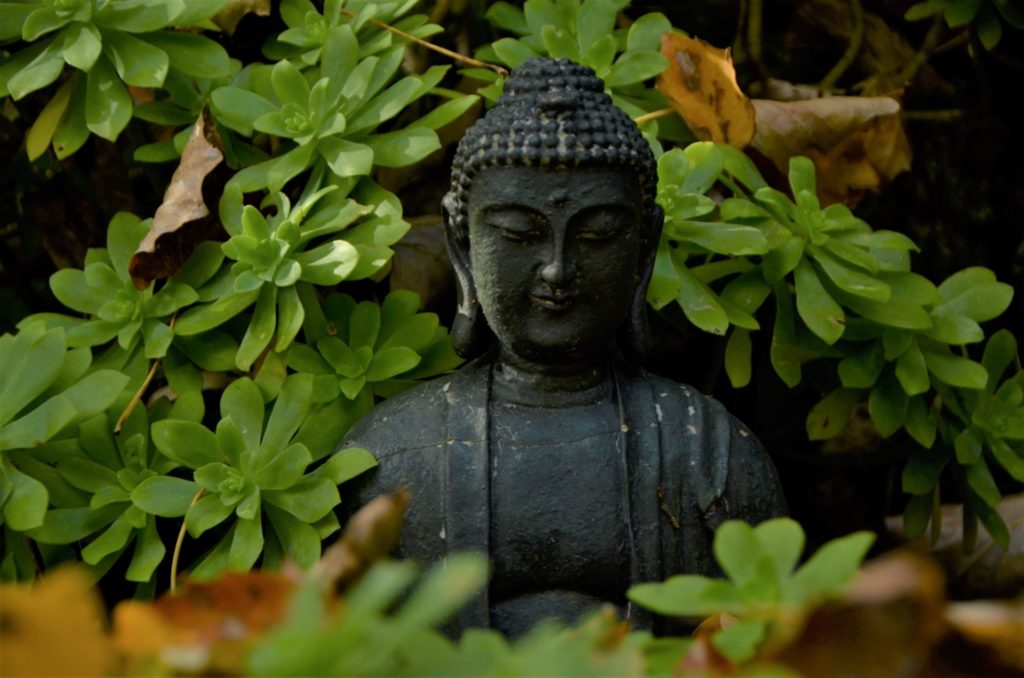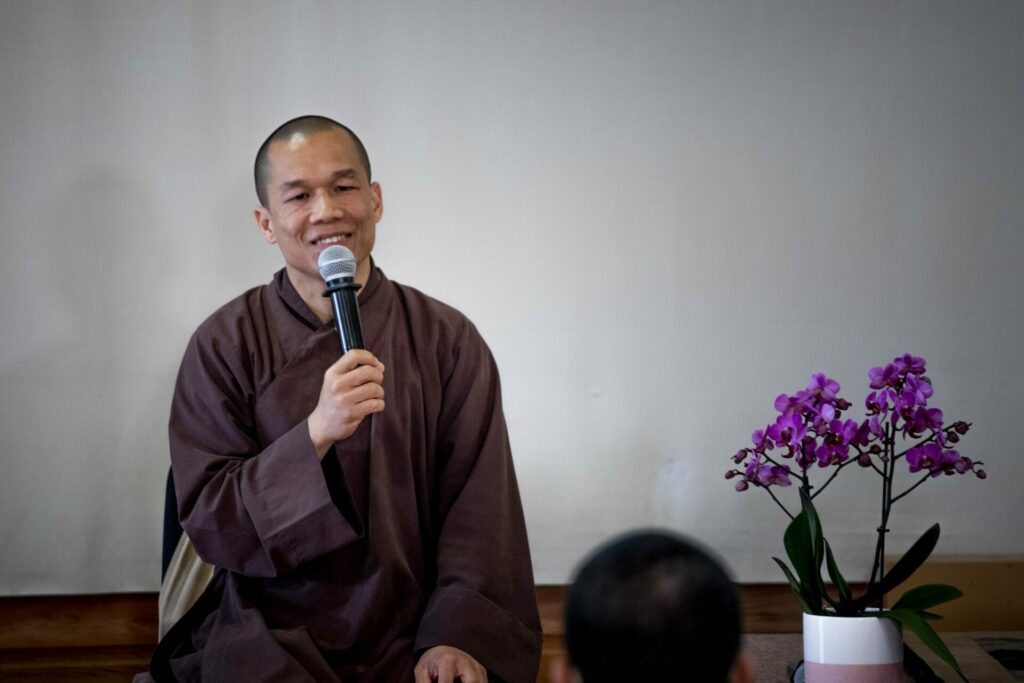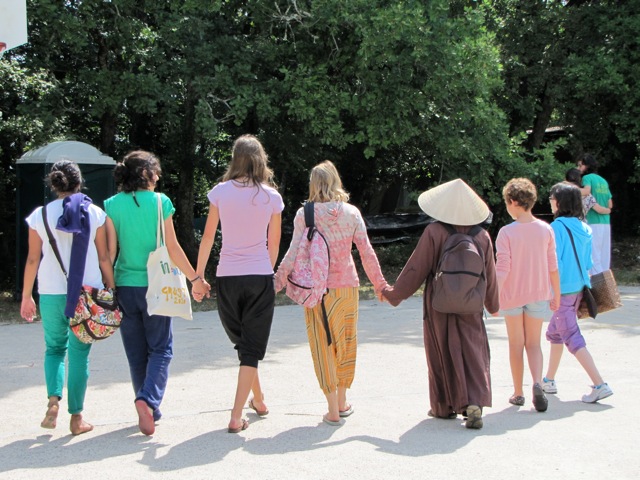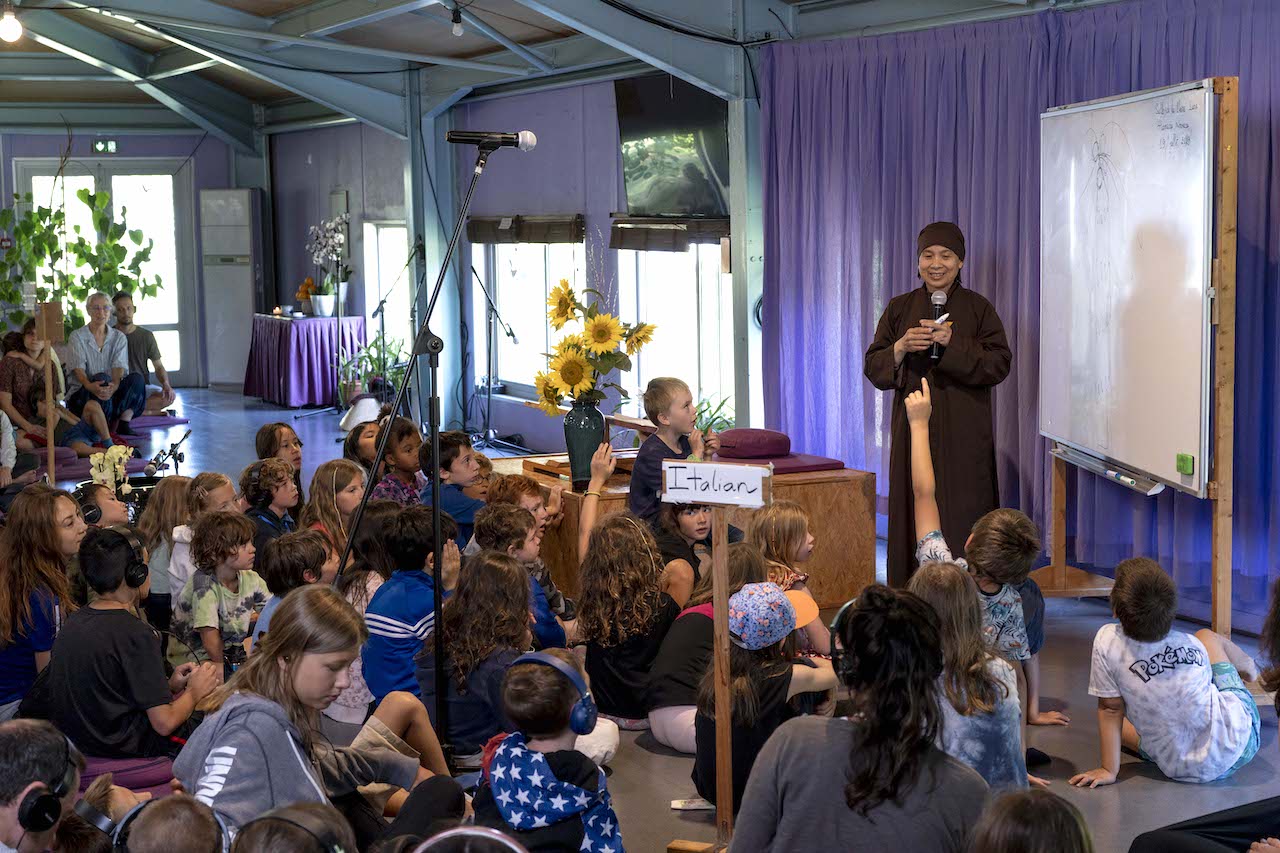By Brother Chan Minh Hy
“Please call me by my true names,
so I can wake up
and the door of my heart
could be left open,
the door of compassion.”
—from the poem “Please Call Me By My True Names”

The door of compassion is the door of our hearts. We can open or close that door to any person. We have the right to love or to be angry or sad. When
we love, we have more space inside ourselves; whereas when we are angry, we have less space. To be angry or sad also gives us a unique space to be in;
however, at times it may seem cramped, confined. Sometimes we want to run far far away to escape that confinement. Sometimes we want to burst into a lot of laughter to shatter that confinement, to empty out the depths of our hearts.
The heat in Central Vietnam can be very unpleasant if you are not used to it. You have to stay there long enough–that is, figuratively speaking, you have to be accustomed to the spicy and salty cuisine of the region–to be able to get used to that scorching heat. Sometimes, it is so hot that there is no escape no matter where you sit. It’s hot in the house. It’s hot in the garden. It’s hot in the daytime. It’s even hot in the evening.
At night, we leave all the doors and windows wide open hoping for a cool breeze to blow in to chase away the heat. Once in a while, a gentle breeze blows in and we fully savor that refreshing sensation. That is a moment of happiness.

The door of compassion and the door of anger are one. Whether it is open or closed is up to us.
If we want to learn how to love, then we have to leave the door of our hearts wide open. Even when our hearts–that is, our houses–are burning with irritation, if we leave the door open, then a few gentle breezes are bound to blow in to soothe the discomfort. Those light breezes may be the things that are wholesome and beautiful about that person; we simply let those things naturally enter our hearts. We accept them and make the most of their beauty.
We tend to only welcome the cool breezes into our houses. We do not like the unpleasant breezes; so we push them away. But where will they go? They will not go anywhere at all; they will still be there. We have the impression that if we hate them, then those unpleasant things will leave our home; but, in reality, they do not go anywhere at all.
We can hate a dry breeze but we cannot push it away. Only a refreshing breeze can chase away that dryness.
That unpleasantness might not come from that person. It might have originated from various unsatisfactory incidents that happened over many days and years. Think about it. Just within today, how many things have happened that we consider unsatisfactory? How many of those things come from that person and how many come from other sources?
Upon waking up, there is already something we find unsatisfactory. All the way till when we go to bed at night, we are still not satisfied; there will still be things that cause us to toss and turn in bed, to worry about. Who knows when we will ever be satisfied with that displeasing thing!
If there was a person who came from an even dryer region, the same dry breeze would not bother them much. Therefore, to be pleased or to be displeased is not the issue. It depends on the way we perceive it. If we know how to perceive things with compassion then everything will become pleasant.






